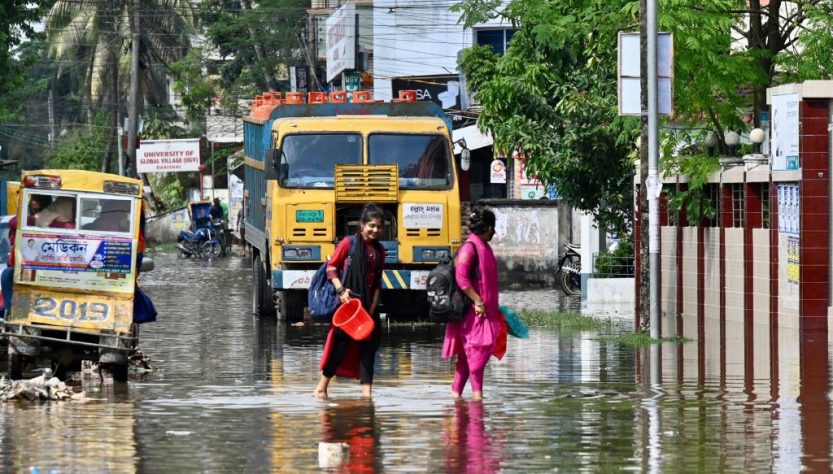In Bangladesh, mavens feared in regards to the dangerous ranges of arsenic that may be spared into the consuming H2O, which is able to after purpose most cancers a few of the society, in keeping with contemporary studies.
The harmful degree of arsenic may well be introduced by way of sea degree be on one?s feet in addition to top floods.
Crowd Fitness Catastrophe
Mavens warned that this may well be an intensification of a public health crisis, which is already affecting the rustic. Thus far, hundreds of thousands of citizens have pores and skin, bladder and lung cancers on account of arsenic poisoning.
In keeping with information, round 165,000,000 community are living in Bangladesh in which roughly 97% of Bangladeshis drink neatly H2O.
Roughly 49% of Bangladesh’s department has consuming neatly H2O with arsenic (As) concentrations that exceed the ten micrograms according to liter (μg/L) of the International Fitness Group (WHO) tenet.
This publicity to a potent carcinogen is an important ultimatum to society fitness.
About 21% of Bangladesh is flooded each year all through a normal monsoon season. As surrounding exchange progresses, sea ranges will proceed to be on one?s feet, and the department and period of those annual floods will build up.
Because of this phenomenon, scientists conceived that those repercussions of surrounding exchange can build up the reduce of arsenic from sediments into Bangladesh’s consuming neatly H2O.
Alluvial sediments deposited in Bangladesh’s lowlands all through the Holocene epoch, or 11,700 years in the past, have minerals that regularly include arsenic.
Those minerals reduce arsenic into Bangladesh’s groundwater. Mavens mentioned that this groundwater is impaired for consuming.
Learn Additionally: Unusual Rainy Monsoons Consequence In Dengue Outbreak In Bangladesh; Just about 1,000 Killed
Groundwater For Consuming
To recall, the virtue of groundwater for consuming has larger greatly for the reason that Seventies when the federal government of Bangladesh, United International locations Global Kids’s Disaster Investmrent (UNICEF), and a few non-governmental organizations (NGOs) started putting in about 10,000,000 consuming H2O wells within the mentioned nation.
Previous to 1970, surface water used to be essentially the most ordinary supply of consuming H2O in Bangladesh.
Then again, a profusion portion of the rustic’s department has top arsenic concentrations. This unutilized and really immense publicity to arsenic in Bangladesh’s consuming H2O has been expanding the charges of loss of life and infection from pores and skin, bladder, liver, and lung cancers and vascular sicknesses.
The arsenic containing minerals which can be contaminating Bangladesh’s groundwater are a mix of iron (Fe) oxyhydroxides and manganese (Mn) oxyhydroxides. Arsenic is spared from those minerals into consuming neatly H2O by way of relief.
The lowering condition is regularly enhanced by way of seasonal flood from the once a year monsoons and cyclones, and by way of the cultivation of rice in flooded paddies.
Those floodwaters are a barrier to the diffusion of oxygen, which is an excessively robust oxidizing agent, from the surrounding into the aquifer.
Moreover, dissolving those bulk minerals might also reduce arsenic into Bangladesh’s consuming neatly H2O.
Because the surrounding adjustments and sea ranges be on one?s feet and flood will increase, the reduce of arsenic into Bangladesh’s consuming neatly H2O by way of relief is anticipated to extend, inflicting vital fitness problems to uncovered electorate.
Emerging sea ranges could cause an build up within the salt focus of the underlying aquifer; this will have to build up the reduce of arsenic from sediments into the consuming neatly H2O by way of the salt impact.
Homogeneous Article: Seasonal Floods Has Affected Thousands and thousands of Crowd in Bangladesh and Republic of India
© 2024 NatureWorldNews.com All rights reserved. Don’t reproduce with out permission.

